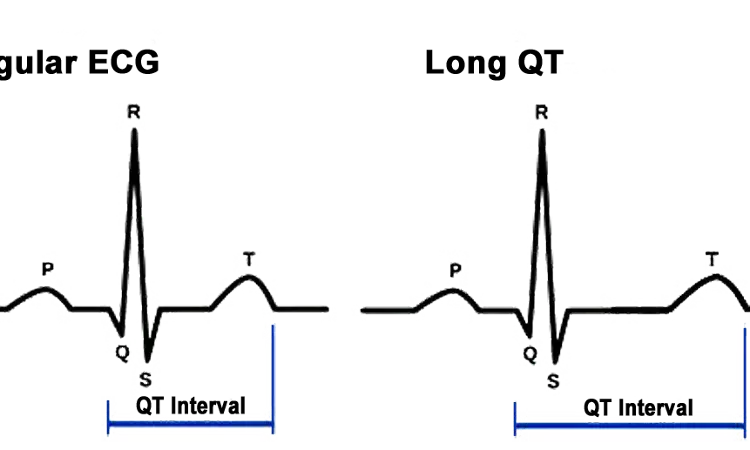- Home
- Medical news & Guidelines
- Anesthesiology
- Cardiology and CTVS
- Critical Care
- Dentistry
- Dermatology
- Diabetes and Endocrinology
- ENT
- Gastroenterology
- Medicine
- Nephrology
- Neurology
- Obstretics-Gynaecology
- Oncology
- Ophthalmology
- Orthopaedics
- Pediatrics-Neonatology
- Psychiatry
- Pulmonology
- Radiology
- Surgery
- Urology
- Laboratory Medicine
- Diet
- Nursing
- Paramedical
- Physiotherapy
- Health news
- Fact Check
- Bone Health Fact Check
- Brain Health Fact Check
- Cancer Related Fact Check
- Child Care Fact Check
- Dental and oral health fact check
- Diabetes and metabolic health fact check
- Diet and Nutrition Fact Check
- Eye and ENT Care Fact Check
- Fitness fact check
- Gut health fact check
- Heart health fact check
- Kidney health fact check
- Medical education fact check
- Men's health fact check
- Respiratory fact check
- Skin and hair care fact check
- Vaccine and Immunization fact check
- Women's health fact check
- AYUSH
- State News
- Andaman and Nicobar Islands
- Andhra Pradesh
- Arunachal Pradesh
- Assam
- Bihar
- Chandigarh
- Chattisgarh
- Dadra and Nagar Haveli
- Daman and Diu
- Delhi
- Goa
- Gujarat
- Haryana
- Himachal Pradesh
- Jammu & Kashmir
- Jharkhand
- Karnataka
- Kerala
- Ladakh
- Lakshadweep
- Madhya Pradesh
- Maharashtra
- Manipur
- Meghalaya
- Mizoram
- Nagaland
- Odisha
- Puducherry
- Punjab
- Rajasthan
- Sikkim
- Tamil Nadu
- Telangana
- Tripura
- Uttar Pradesh
- Uttrakhand
- West Bengal
- Medical Education
- Industry
In pediatric structural heart disease with HF, QTc prolongation tied to ventricular dysfunction

Canada: In pediatric structural heart disease (SHD) with heart failure, each QTc and QRS prolongation are associated with ventricular dysfunction, a recent study in Pediatric Cardiology has stated.
Further, QTc prolongation is an indication of poor outcomes in cardiomyopathy (CM) and structural heart disease groups, leading to a higher death or transplantation risk. The progressive lengthening of QTc over time in pediatric patients with heart failure and reduced ejection fraction (HFrEF) may indicate an increased risk in this population.
Previous studies on adults have shown that depolarization and repolarization abnormalities are associated with worsening heart failure. However, in pediatric congenital heart disease, this relationship is not well understood. Elizabeth Stephenson, Department of Pediatrics, SickKids Hospital, Toronto, ON, Canada, and colleagues, therefore, aimed to evaluate the association between QTc and QRS duration to systolic function and outcome in children with HFrEF.
For this purpose, the researchers performed a retrospective, single-center, 14-year cohort study of HFrEF children. Clinical records, electrocardiograms, and echocardiograms were reviewed for every clinical encounter. Collection of diagnosis, outcomes, interventions, QRS and QTc duration, and systolic function was done. The association between depolarization and repolarization to cardiac function. The effects of age, and time since diagnosis were examined and measured and change in QTc and QRS duration on time to transplant/death.
136 cardiomyopathy (CM) and 47 structural heart disease (SHD) patients were enrolled.
Key findings of the study include:
- Prolonged QRS and QTc were associated with systolic dysfunction. This association was significant in SHD group, but not CM group.
- The progressive lengthening of QTc was significantly associated with transplant or death in the overall cohort (HR 1.02), SHD, (HR 1.020), and CM (HR 1.017).
The researchers concluded, "progressive lengthening of QTc over time in children with HFrEF may indicate an increased risk in this population."
Reference:
Mah, K., Chen, S., Chandhoke, G. et al. QTc and QRS Abnormalities are Associated with Outcome in Pediatric Heart Failure. Pediatr Cardiol (2022). https://doi.org/10.1007/s00246-022-02932-x
Dr Kamal Kant Kohli-MBBS, DTCD- a chest specialist with more than 30 years of practice and a flair for writing clinical articles, Dr Kamal Kant Kohli joined Medical Dialogues as a Chief Editor of Medical News. Besides writing articles, as an editor, he proofreads and verifies all the medical content published on Medical Dialogues including those coming from journals, studies,medical conferences,guidelines etc. Email: drkohli@medicaldialogues.in. Contact no. 011-43720751


